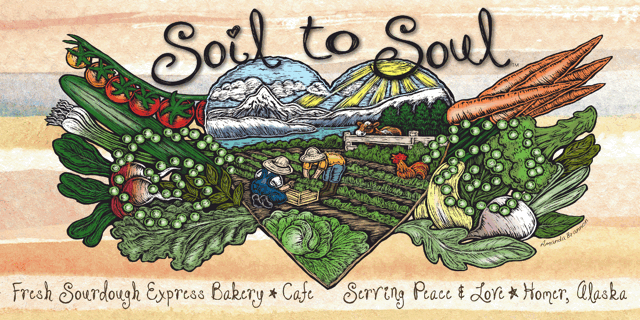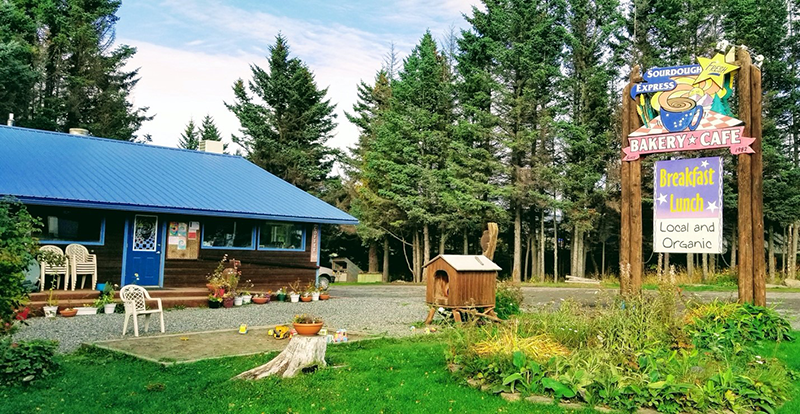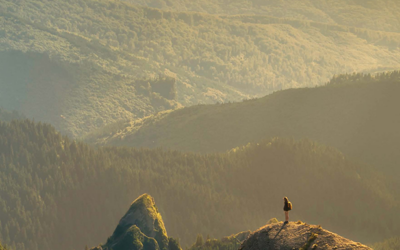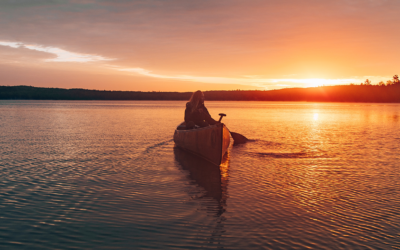Photo Ben White on Unsplash
CoalitionWILD Global Mentorship: Cracking the Code of the Business Side of Conservation and Preservation
International Perspectives
December 2021 | Volume 27, Number 3
The CoalitionWILD Global Mentorship program pairs rising conservation leaders with veterans from the environmental field for a 12-month virtual and intergenerational exchange. The program provides avenues to build networks, encourages perspective exchange on challenges and celebration of success, and is committed to bridging the gap between generations, cultures, and experience. CoalitionWILD endeavors to go beyond developing the leadership skills in mentees. Rather, this mentorship program is committed to collaborative and equal partnerships between participants built upon foundations of trust, respect, and curiosity. Learn more at www.coalitionwild.org/mentorship/.
Many of us have common questions and face similar dilemmas while trying to earn a living saving the Earth. How do we earn a decent living as environmental advocates working for the rights of Nature? Why are we not justly financially rewarded for our conservation and preservation practices and careers, and how do we overcome this hurdle to establish ourselves in the environmental field? How can we maintain our hope and passion, and avoid the impulse to “jump ship” and leave the field when the combined emotional burden of hearing constant depressing environmental news and the financial burden of struggling to make a living become too much?
This article addresses these questions and proposes solutions. We suggest that a global, intergenerational, gender-inclusive approach is imperative to solve the inequality crises we are facing. If we act locally and think globally with our careers, the problems are no longer as astronomical. We need the intergenerational power of mentors or guides to share insights and experiences along the way, helping us address the many challenges.
Part of our job is to change our mindsets and the mindset of the masses. By changing our attitudes, language, and how we think about our careers and money, we become more than advocates. We become environmental champions who make the world a habitable place for our children because they deserve to grow up in a world where they can freely breathe.
A Changing World, a Changing Sector
The world is changing quickly, and with it, the career landscape. This both opens the door to many opportunities and undercuts any comforting feelings of career stability, however illusory they may be. Generation Y now holds jobs that did not exist 20 years ago, such as social media manager and data miner (Casserly 2012). A shocking statistic shared by Wagepoint found that the top 10 most in-demand jobs in 2010 didn’t even exist just six years prior in 2004. This trend is set to continue for Generation Z and beyond, with another statistic from 2013 claiming that 65% of children entering school today will work in jobs that do not currently exist (Thampan 2013). How do you prepare to enter the workforce to fill jobs that don’t even exist yet? The good news for the Gen Y and Gen Z “digital nomads” and “digital natives” is that several newly created careers – and predictions for those not yet created – center on the environment and human health. This provides a clear direction for those pursuing further studies and setting career goals.
Growing consumer demand for ethically sourced and environmentally sustainable products has led to 40% of companies polled in 2020 declaring that they’ve dedicated efforts to improve their environmental and social impacts (Caldwell 2020). This is up 25% from 2019. The transportation and travel industries are also changing to adapt to new public attitudes. According to Booking.com’s 2021 Sustainable Travel Report, 73% of US travelers think that sustainable travel is vital, and 66% of them say that they want to stay in a sustainable accommodation this upcoming year (Booking.com 2021).
More people moving to cities gives impetus to greening our cities for both human and environmental health benefits. To spotlight a specific job, UMass Amherst quips that arborists have a 150% job placement rate due to incredibly high demand (Holloway 2020). Concern about climate change and the global dependence on fossil fuels has shifted cities’ priorities to boost urban greening and renewable energy. If current trends continue gaining traction and the necessary government funding and policy support, the renewable energy sector could see growth of up to 20 million new jobs worldwide (Kruse et al. 2017). “Green” jobs – jobs that produce goods or services that benefit the environment and conserve natural resources, or jobs that use more environmentally friendly processes or fewer natural resources – have outpaced jobs in other categories by almost 250% during the past decade, and their growth doesn’t appear to be slowing down anytime soon (Project Learning Tree 2019).
COVID-19 has also done a tremendous job of exposing our world’s dysfunction and the need for dramatic change if we are to live on a habitable planet. The virus has brought global attention to the positive environmental changes that take place with reduced human activity and, more broadly, the link between human and environmental health. Hopefully, this will strengthen the trends toward interweaving regenerative solutions and sound environmental practices into the fabric of our lives. Prioritizing our health, family, and careers – in that order – puts us on a path to care for both ourselves and the planet. Finding a job or creating a business that contributes to the betterment of future generations is critical to tackling future health crises. True success is prioritizing the health of people and the planet over greedy profits.
Entering the Environmental Field: Vanessa’s Story
It has become the custom in certain fields to take on positions for work experience that cause short-term stress and discomfort as a sacrifice for potential long-term financial stability. But is it right that we ask people to do this?
It was certainly part of my experience entering the environmental field. I was on the not-so-merry-go-round of unpaid internships, volunteer positions, and low-paying seasonal gigs for what seemed like much longer than my friends in other fields, some of whom were able to immediately secure full-time, well-paid jobs post-graduation. I recognize that some of my prolonged entry path is likely because my undergraduate and graduate degrees are in different fields, and that my master’s degree is considered quite “niche”: I have BAs in Spanish language and studio art and an MS in ethnobotany. However, I worked hard to get excellent grades and supplement my academic work with extracurriculars that gave me work experience, which I thought would translate into job opportunities. Instead, I took on unpaid positions to gain experience before obtaining my master’s, while also working full-time and living at home to save money. I viewed this as a necessary sacrifice, the “cost” of entering the field. Reflecting, I’m disappointed that this is the path to which I and so many others have been subjected.
“The relationship between habitat destruction, the climate crisis, and the pandemic can no longer be overlooked, making our jobs as environmentalists even more valuable.”
During my master’s, I then worked another unpaid internship tracking the effectiveness of conservation efforts and accepted a low-paid contract position post-graduation as an eco-camp instructor teaching youth the value of plants and natural resources. After struggling to secure a full-time job when this position ended, I then led education programs and planned youth environmental service experiences during a six-month internship position with the National Park Service, receiving just $160 a week as a stipend. Although housing was provided, that amount was insufficient to cover my gas, food, medical expenses, car insurance, and other living expenses, which I covered by using personal savings and relying on additional family support. It was a shock to me to realize that at 28 years old I was a low-paid intern who had moved home twice to save money, despite being a triple degree-holding honors program graduate.
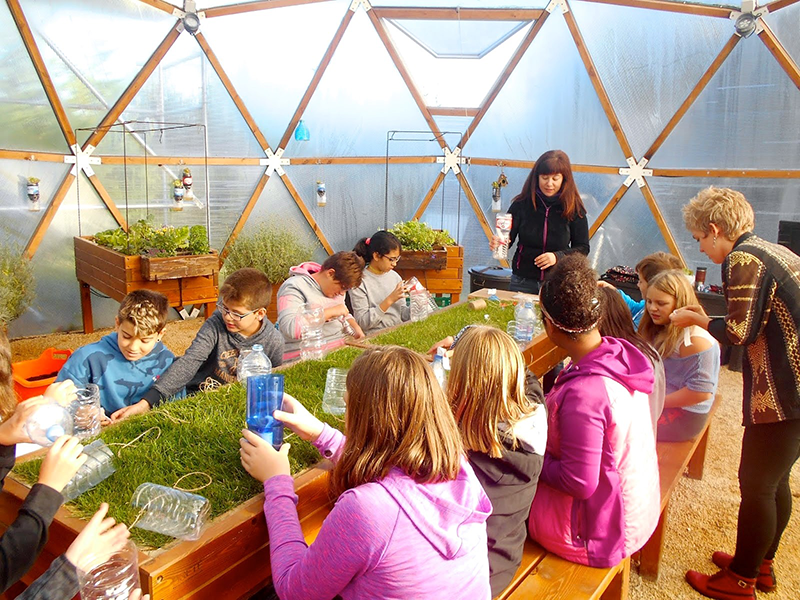
Figure 1 – Vanessa teaching students how to make recycled water bottle gardens at a youth eco–camp in Espejo, Spain.
I began to see friends who had jobs in business, technology, law, and medicine purchasing homes and meeting other financial goals, while I was still struggling to find some semblance of stability. My current position is full-time and better compensated, although not without its stresses: I had to move away from family to take this job, and I live on a modest nonprofit salary in a location that has a cost of living that is 105% higher than the national average, the San Francisco Bay Area (Areavibes 2021). It is by no means easy.
Environmental justice advocates and activists are among the most compassionate, fiery, and creative people, and we need to know that our time is making a positive impact. We seek excellent jobs: ones in which we are fully valued, and the environment is prioritized. Being passionate people, we can run the risk of sacrificing our health in service of our work, with disastrous consequences. Are the new environmental jobs going to pay enough to keep qualified people employed? Or are they merely another J.O.B. that’s going to pay a meager salary, keeping employees “Just Over Broke”? If you’re broke and scrambling, how do you have the time and mental energy to protect the environment?
It is alarming to hear the experiences of many recent graduates and other young people in the environmental sciences who are vexed by their exploitation in the workforce. The unfortunate norm for those looking to break into the field includes little to no pay, long hours, overwhelming research tasks, and limited support for mental health. Nobody – in any field – should be faced with choosing between their mental health or following their passion. We need to compensate fairly and establish strong, intergenerational network connections so that people do not see ecological restoration and protection as a path to sacrificial martyrdom of mental health and financial security. To renew ourselves and regenerate the Earth, it is essential to sustain those who do the work to protect the planet.
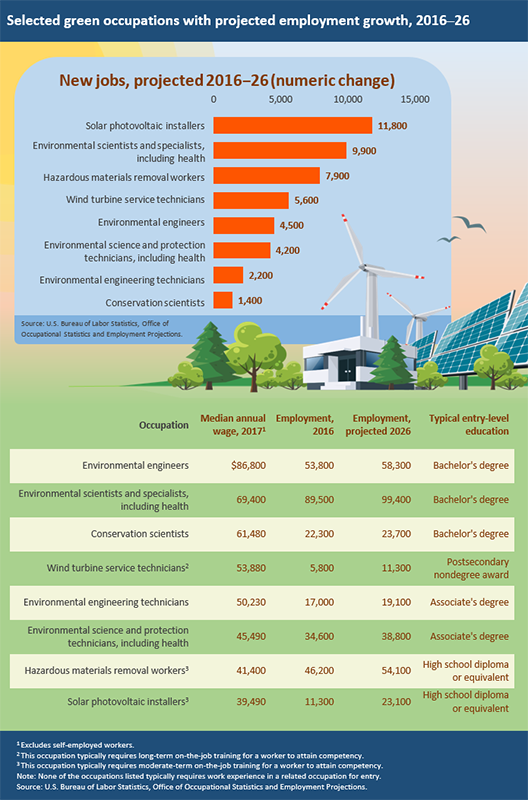
Figure 2 – Salaries of environmental occupations tend to be lower than those that require comparable experience in other fields (with some exceptions).Courtesy of US Bureau of Labor Statistics, https://www.bls.gov/careeroutlook/2018/data-on-display/green-growth.htm.
The Challenges for the Physicians of the Earth
While projected trends for green job growth and public interest seem to bode reasonably well for those entering or already in the environmental sector, the associated salaries are often lower than jobs at similar education levels in other sectors (with some notable exceptions). The environmental sector is projected to grow 8% from 2019 to 2029, and we have an opportunity to push for better treatment and fair pay so that green jobs that pay well and respect employees’ mental and physical health become the norm and not the exception (EcoCanada 2020). A job will not be a sustainable long-term option for a worker if it doesn’t pay adequately. The annual mean salary for all occupations in the United States is $56,310 (US Bureau of Labor Statistics 2020), increasing to $73,892 for college graduates with at least an undergraduate degree (US Bureau of Labor Statistics 2021). With this in mind, the median annual wages for green occupations seem low, mainly ranging from $40,000–$70,000 even for degree holders (Torpey 2018). The top 10 cities for green jobs also correspond with many of US cities with the highest living costs, including the San Francisco Bay Area, New York City, and Washington, D.C (Hoffman 2020). Although the median annual wages for green occupations are adjusted somewhat in these locations to account for the higher living costs (according to searches on Career Explorer and Glassdoor), the adjustments still fall short of making up for the difference in the cost of living.
During this time of a global crisis, we see the direct correlation between the environment and human health. The physicians of the Earth, those working to save the Earth, deserve comparable pay to medical physicians. A sick Earth is not a healthy place to live. As physicians of the Earth, our work is to educate the masses that Earth is our most important bank, providing the resources that sustain life. We’ve already taken far too many loans out against the health of the planet, and it is in deep debt. As fires blaze, sea levels rise, and the planet heats up, it is time to expose the truth and recognize the value of the experts responsible for saving the Earth, and humanity.
It is also impossible to have a healthy economy when the Earth is sick. As economies fall into recession, people are led to believe that what we need is consumption to get us out of the mess, when indeed that is what has exacerbated our environmental and health crises. Environmental advocates understand that mass production and overconsumption are responsible for eroding the natural world, and that an economy based on extraction and greed has proven unsustainable, degrading ecosystems, and triggering the development and expansion of mutating viruses and other health issues.
The relationship between habitat destruction, the climate crisis, and the current pandemic can no longer be overlooked, making our jobs as environmentalists even more valuable. Locally and globally, our careers have the opportunity and the responsibility to safeguard the futures of generations to come. Those in the environmental field are taking up this arduous task of being physicians of the Earth. Environmentalists, eco-consultants, outdoor leadership instructors, environmental educators, regenerative farmers, climate scientists, naturalists, biologists, and many other experts are committed to revitalizing habitats, drawing down carbon, and protecting the Earth’s biodiversity. Despite dismal projections of accelerating global climate change, our society continues to grossly undervalue these essential professions. The injustice of discriminating against those saving the Earth has gone on for too long.
The physicians of the Earth understand what needs to be done to heal the microbiome of the soil that feeds us and manage the water that sustains us. Like holistic physicians, they understand the value of prevention, preservation, and conservation. Professions that improve the quality of life for all sentient beings are golden careers and deserve equal pay. We must value this good work and the people behind it: the lifesavers, the Earth’s physicians.
Educating and Retooling Systems to Align with Ecology and Equality
The digital economy, which is also regulated by the government, is destined to surge in the information age. This is where many people are getting their FREE education. Green technology jobs can assist us in the right direction, as can eco-entrepreneurs who understand how important the online web is to protect the web of life.
One of the greatest appeals of a green career is shaping the future for our children. If we are to live like the future matters, we must educate everyone from preschoolers to PhD holders about how vital the natural world is to our survival and inspire action. We might understand what it takes to have potable water and clean air and how to reduce wildfires, drought, and the effects of polluting factories, but do our children? We might know the value of biodiversity, regenerative agriculture, and the urgency to sequester carbon, but does a chemical engineer? We recognize that our work can decrease medical costs associated with respiratory illnesses by living in harmony with Nature, but do oncologists? The point is, we must educate everyone on how vital the natural world is to our survival. If everyone knew that the healthier the Earth is, the less likely disease is to spread, maybe they would listen.
It will take a concerted effort to shift our mindset to realistic consumption habits and the notion that when the Earth’s immune system is healthy, all lives, including yours and mine, are healthier. Education is key to building a new society based on balancing our economy with Nature. We are at the tipping point if we do not educate the masses. We must provide our students with the tools, truth, and wisdom to flip the script from economics to eco-human-nomics. It’s our responsibility to demand our educational institutions teach the importance of a green economy, preservation, and conservation.
Eco-Entrepreneurship: Donna’s Story
Since the Ice Age, nothing has changed the world faster than business. It is ethical businesses, led by morally courageous people, that can rapidly transform our world for the better. – Donna Maltz
If you cannot find your dream jobn the environmental field, create one. Many citizens are hungry for a change and searching for what you have to offer. The 21st century has awakened eco-entrepreneurial leaders who produce solution-oriented innovations.
Regardless of occupation, everyone, whether you are an environmentalist, artist, educator, chef, hairdresser, engineer, manufacturer, tech aid, retailer, farmer, business owner, and so on has an environmental impact. You have a responsibility to ensure that this impact is focused on regeneration, not degradation.
Rather than join the job chase, chase your dreams. Yes, taking a calculated risk can be frightening. But remember, you are an educated environmental advocate living in the information age. After a few good business classes, you’re on your way to your dream career. By thinking out of the box and embracing a can-do mindset, anything is possible.
Before I started my first business as an organic farmer in 1980, I thought money was the root of all evil. Shifting my mindset took waking up to the notion that money itself was not the problem; the problem was what I thought about it. Once I realized that I could turn that money into something that could help others and the Earth, I had no problem making a lot of it. We must not let money define us but instead enhance who we are and what we do. We must never let our net worth outweigh our self-worth. Money is merely a social and cultural construct. It is the intention we give to the money’s purpose that matters. Taking control of our relationship with prosperity and positioning ourselves to thrive while healing the Earth is a mindful choice.
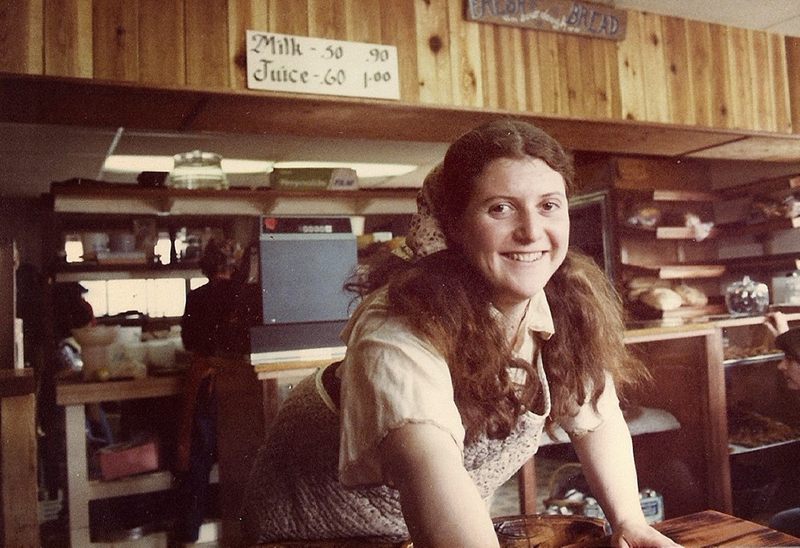
Figure 3 – Donna Maltz at 25 serving healthy food with Peace and Love when milk was around $2.00 a gallon.
My degree was in social ecology, and until I was 25, I spent most of my early 20s organic farming. Finding a job with my experience and in my field was impossible, so I created one that ensured my passion for preserving Nature was at the forefront of my endeavors. I moved to Homer, Alaska, in 1982 and started the first natural foods bakery and café in the state. With its tagline “Food for People and the Planet,” the café made a lasting impression. Our mission was to serve local organic food and make the world a better place, one bite at a time.
It was not always easy, but it made more sense than selling my soul, and I made good money, certainly, more than any J.O.B. (“Just Over Broke”) was willing to pay an organic farmer with a degree in social ecology. I used the social part of my education to enhance communication with my staff and customers and taught ecology using my menus and marketing materials. The restaurant succeeded in its mission for 37 years in a state that was extracting oil for the bulk of its revenue. Many viewed me as a nonconformist, hippie, tree lover, and so on, but it all paid off in more ways than one.
I did this while bucking the tide of fast food that was taking over small farms. For years, most people did not care that we were serving local and organic food, but I did not give up. I worked hard to create a “web of life” culture in the café that was fruitful and served my community. I’m proud that our café earned the recognition of Alaska’s Small Business of the Year in 2010 for being a socially and environmentally responsible business. When I got the call, 28 years after starting the business, that we had been selected, I broke down in tears of joy. The award ceremony took place in a fancy hotel conference room. With my devoted husband by my side, I delivered our acceptance speech. The audience, many of whom were once disbelievers in green business, were now respected colleagues. It was a very emotional event and a proud moment for both of us. Perseverance had paid off.
During that time, I created multiple other successful eco-businesses, which I used as a medium to educate people and make a difference with my career. My career has now shifted to teaching and inspiring eco-entrepreneurs. I help them shift from unfulfilling corporate or governmental jobs to fulfilling lives and careers.
When you start making more money than you imagined, you realize it has the power to empower and create or disempower and destroy. It is gratifying to provide a service that people appreciate and to create opportunities for people to work in positive environments. It feels good to donate money to causes you believe in and to lend money to others. To build true wealth means to put our money into helping others and the Earth.
The Ecosystem of a Healthy Business
Not everyone has an entrepreneurial drive. If you’re convinced you cannot start a green consulting firm, farm-to-table restaurant, edible landscape business, or repurposed clothing company, and want to help run a green enterprise, have no fear. If you are passionate and determined, partner up with an ethical company. Most entrepreneurs will embrace your skills, whether analytical, technical, or manual.
Western society often values individualism and individual accomplishment above collaboration. However, this mindset isolates people and ignores that bringing together people with varied skill sets and talents allows us to achieve more and find greater personal satisfaction. The uniqueness of each individual adds value to any enterprise. Just like in Nature, it takes diversity to function at peak performance.
An employer has a responsibility to create a business culture that encourages team members to lead their healthiest lives, know their worth, and know the worth of the place they live and work. Then, their business is truly successful. People feel more valued when they work with you rather than for you. When people feel appreciated, they are happier and more productive, making the business or organization more successful. This yields higher profits and higher paychecks, benefiting all.
A team leader who cultivates the mindset of a food forest, as opposed to a sterile monoculture, creates a dynamic work environment. Redefining what success and wealth mean is part of the paradigm shift needed to save the Earth.
It is invaluable to work for an employer who understands that dignity has worth.
Ethical Investors and Avoiding Greenwashing
According to the Global Sustainable Investment Alliance 2020 report, at least $35.3 trillion of funds in five regions globally are held in sustainable or green investments, up 15% from 2018 (Global Sustainable Investment Alliance 2020). Imagine what would happen if all billionaires contributed to investing in a just world. Green investments are becoming part of a new way of doing business.
But like clean energy, we must also demand clean money. Greenwashing is the phenomenon in which an organization falsely claims to do environmental good when in fact it may be merely offsetting its other environmental harm. Accepting funding from investors who have earned their wealth through participating in business ventures that cause direct environmental and social harm is one onerous type of greenwashing that we must be extremely careful to avoid. These investors benefit from being linked with environmentally positive endeavors, but many also participate in environmentally destructive practices. Their connection to green investments, therefore, helps them “save face.” We need to call out the companies who participate in these practices and force them to be accountable for their actions, or we will continue down this dismal path.
Eco-Entrepreneurs Make Their Own Policies
As an eco-entrepreneur. you can create meaningful employment and set an example for others to stimulate an ethical economy. In addition to improving the antiquated infrastructure and old business models, we desperately need more mental health professionals, Nature therapists, and holistic practitioners to help in these trying times. With ingenuity in every sector of the economy and in every social-economic ecosystem, we can rebuild regenerative communities based on necessities, not gross consumption. With the right nutrients, we can turn this into a fertile world once again. As we are faced with so much adversity, a proud movement is rising and pushing back on injustice. Broadening our sights, we realize we can be happy doing things differently.
If you are ready to jump in and ride the wave of entrepreneurship, first, you must get to know yourself fully, apart from anyone else’s vision of you. Who are you? What do you love to do? What is your “purposeful why”? Why are you on this planet, and how can you contribute? Human behavior patterns form during times of crisis and times of good fortune. Now is the time to consider your options.
Conclusion
During the COVID pandemic, many people have been reassessing what is truly “essential” and are reprioritizing health, family, and business – in that order. The authors speak with people all around the world about these issues and sense a common bond that people are ready for this paradigm shift. Many people want to be educated, and given the opportunity, they will strive to incorporate life-saving measures. We just need to teach the right things and stop the spread of information that is not scientifically or ecologically sound.
When enough of us cherish the Earth and respectfully balance our resources, we will rebuild a healthy economy. It’s time for innovation to kick in, in all areas: from congregations to curriculum, the White House to your house, rural communities to urban areas. We can create the world we wish for our children to inherit. It’s time to green our economy and demand corporate accountability.
We can create new careers and a new economy that fosters giving back. We can educate the masses that a healthy economy is dependent on a balanced Earth and that to get there, we must value the physicians of the Earth and eco-entrepreneurs who are the practitioners, healers, and are the voices for all life kind. If more people believe and act in humanitarian ways, we can expect fewer global health pandemics and environmental degradation.
By working together, people in the environmental field can rebuild our unsustainable systems and demand higher wages. It’s our job to prove this point and demonstrate our worth. These 21st-century crises present us with extraordinary opportunities. We face common problems that will take collective action. When we commune with one another and Nature, we are unstoppable.
Never doubt that a small group of thoughtful, committed citizens can change the world; indeed, it’s the only thing that ever has. – Margaret Mead
About the Authors
VANESSA WYNS is the education director of Canopy, an urban forestry nonprofit based in Palo Alto, California, that serves the Midpeninsula region; email: Vanessa@canopy.org.
DONNA MALTZ is a voice for nature, eco-entrepreneur, author, speaker, Soil to Soul coach, and leads holistic retreats on the Big Island of Hawaii focused on Nature therapy and the culinary arts; www.donnamaltz.com.
Resources and Recommended Reading
●Living Like the Future Matters: The Evolution of a Soil to Soul Entrepreneur by Donna Maltz
●Conscious Cures: Solutions to 21st Century Pandemics by Donna Maltz.
●Project Draw Down – https://www.drawdown.org
●Paul Hawken Books – https://paulhawken.com/
●Plant of the Humans – https://planetofthehumans.com/
●Michael Shuman Books – https://michaelhshuman.com/store/
●Conscious Capitalism – https://www.consciouscapitalism.org/
●Robert Reich – https://robertreich.org/
●Green to Gold: How Smart Companies Use Environmental Strategy to Innovate, Create Value, and Build Competitive Advantage by Daniel C. Esty
●Greening Your Office: From Cupboard to Corporation, An A-Z Guide by Wastebusters Ltd.
●Green Your Work: Boost Your Bottom Line While Reducing Your Carbon Footprint by Kim Carlson
●Smart Green: How to Implement Sustainable Business Practices in Any Industry – and Make Money by Jonathan Estes
●Natural Capitalism: Creating the Next Industrial Revolution by L. Hunter Lovins, Amory Lovins, and Paul Hawken
●101 Ways to Turn Your Business Green: The Business Guide to Eco-Friendly Profits by Rich Mintzer
Read Next
December 2021
In this issue of IJW, we remember George Stankey and his contributions to wilderness research and stewardship. Mark Anderson provides a synthesis of recent findings on carbon storage in old growth forests. Rosemary Evans examines prescribed burning in Britain’s moorlands. And Tobias Nickel presents a call for a standard definition of “Natural” in wilderness stewardship.
Crises of Use
As we transition to a post-pandemic society, demand for transformational, restorative, and education experiences in nature will not recede. Nature has demonstrated its diverse benefits to a greater constituency these past months, and we as advocates, scientists, and managers need to embrace the challenge that comes with a larger audience.
George Stankey: Mentor, Colleague, Friend
George Stankey was a critical thinker who saw the big picture and could work across disciplinary boundaries.

